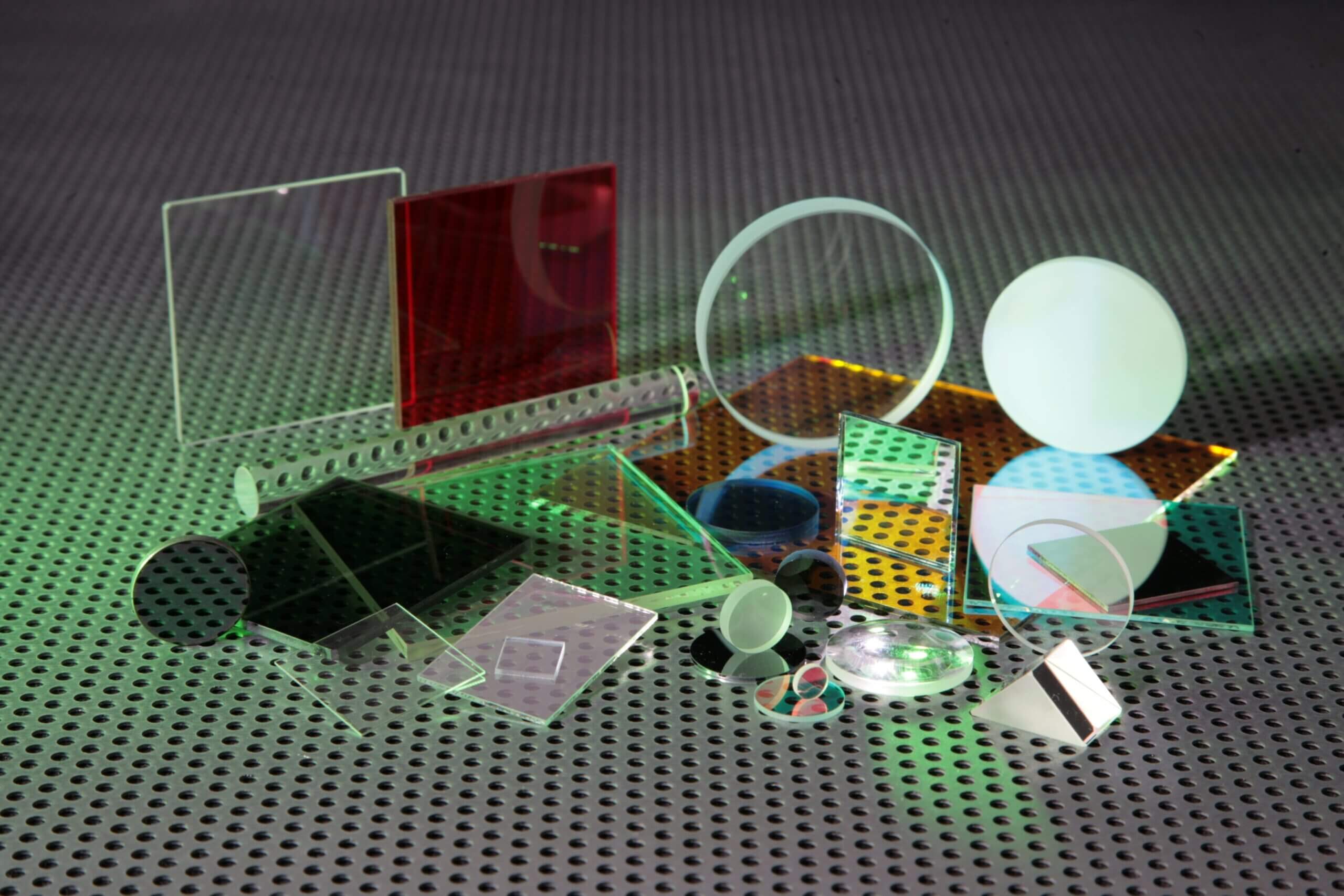The world of optical components can be complex, so sometimes it may be difficult to match up your requirement to a specific product or service. We’ve collected up some Frequently Asked Questions (and answers!) to help you arrive at the right decision.
Q1) Can you provide custom optical lenses to meet a specific focal length requirement?
Yes. Any specification of convex or concave lens can be produced according to the required transmission and in a range of materials and can be made to a specific required focal length.
Q2) Can you provide dust-free products for clean environments?
As part of our advanced optical assembly services, we use a clean room which is filtered and equipped with lamiflow booths, meaning we can supply dust-free packaged components.
Q3) What’s the best way to clean optical lenses, mirrors and windows?
Compressed air is the best way to remove the most common contaminant dust from lenses, mirrors and other optical surfaces. If they require more cleaning, we advise holding the item in lens tissue and applying a few drops of lens cleaning solution, reagent-grade acetone or isopropyl alcohol. If done correctly, the solvent will evaporate uniformly without leaving streaks or spots.
Q4) Do you offer polishing and lapping on customer-supplied optical materials?
Yes. Much of our contract polishing and lapping work is carried out to customer-supplied materials.
Typical polishing services include:
- Re-polishing of damaged surfaces
- Polishing of edges round or square
- Flame polishing rods and tubes
- Optical polishing of light guides
- Glass to metal assemblies.
Q5) What equipment do you use for glass dicing?
Our precision dicing equipment includes a Loadpoint NanoAce 3300 and a MicroAce machine. We can cut to high tolerances and offer an express service to the microelectronics and optical industry.
Q6) How does an anti-reflection coating improve the contrast of images?
Anti-reflection (AR) coatings are used to improve the transmission of light and to enhance the contrast of the image. An uncoated optical surface has surface reflection of approximately 4% per surface, whereas an anti-reflection coating will reduce this to as low as 0.20%.
Q7) What is the difference between Glass Scribing and Glass Drilling?
Glass scribing is used in the slicing scribe and break process. It uses CNC multi- or single blade cutting wheels and is ideal for ultra-thin glass and coated glass sheets. Additional working such as bevelling can be applied after cutting. The cutting tolerance is to ± 0.1mm.
With glass drilling, holes are made using diamond drilling to a minimum of 2mm diameter, or for smaller sizes laser or ultrasonic drilling is recommended. The drilling tolerance is to ± 0.05.
Q8) I have specific cutting requirements. Do you offer bespoke precision cutting?
Yes. At UQG Optics we often undertake precision grinding and cutting of one-off custom or stock optical components to achieve specific dimensions, as well as contract production.
Jobs can range from simple tasks such as cutting a piece of float glass to more complex tasks such as cylindrically grinding quartz rods to tolerances of 0.01mm.
Q9) What material is suitable for precision lapping?
Materials suitable for precision lapping include sodalime glass, borosilicate, fused silica, fused quartz, silicon, germanium, alumina and carbon to name but a few. We offer lapping services on all our optical materials and glasses.
Using double-sided planetary machines, we can focus on components when both sides need lapping to precision tolerances.
Q10) How do you prevent thermal distortion to items during lapping?
Surfaces are lapped simultaneously whilst held in carriers, removing the need for fixing or clamping, and ensuring a stress-free lapping process for the components without any thermal distortion.
UQG’s lapping department carefully handles anything from one-off projects to thousands of simultaneous components.
Next steps
Ask a UQG Optics sales specialist any question about your optical components requirements. Call us on 01223 420329 or email info@uqgoptics.com
If you enjoyed this article, you can find out more in our 2024 FAQs on optical components.




